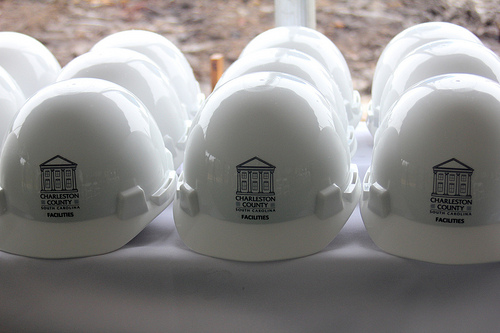Health and Safety doesn’t always get a good press – often seen as creating unnecessary red tape. However, in the construction industry, good safety practices are essential as even small problems can rapidly become dangerous. Whatever your opinion of health and safety regulations it’s likely to change rapidly if something goes wrong. Good safety practices are not about endless paperwork but are often simply good old fashioned common sense. All those working in the construction industry should consider relevant training and business owners need to ensure that all levels of staff are not only properly trained but have a positive attitude towards safety issues.

Expert Knowledge
Finding a training provider is not straightforward as there are many firms offering training in a range of industries. Some will specialise in construction, while others will have expertise in a broad range of sectors. Employers must appoint a ‘competent person’ to conduct relevant training; there are a number of requirements under the regulations as to what constitutes a ‘competent person’ and it’s important to be clear that your provider is qualified to provide training to the required level. Although it is possible to manage the health side of your business, many owners will not have enough experience and may feel it’s important to employ those with expertise in the regulations and relevant areas.
Safety Policies
A training provider should be able to offer advice and further resources for you in order to write and maintain a Health and Safety Policy for your company. This is a key document for you, your management team and your employees. The document should state who is responsible for which areas of safety and when safety tasks or risk assessments will be carried out and by whom. Again, if you don’t feel you have the experience to prepare this document you should ensure that your training provider can arrange advice or offer information on this aspect of the regulations.
Training for all
Training in health and safety will be required at all levels of your business and you should conduct regular reviews to ensure that adequate training has been undertaken. Consult with your management team and employees on a regular basis to encourage them to actively participate in identifying risks and training requirements. Attitude is important in the area of health and safety and positive attitudes to risk at all levels will help to minimise the risk of accidents and associated costs. While training is important for all levels of staff it’s very important to ensure that new starters and anybody changing their role, or taking on more responsibility, has been fully inducted and properly trained. For those taking on site management responsibilities, for example, it’s crucial to ensure that professional SSSTS courses have been completed.
Finding Help
Finding a professional training provider is important to ensure that members of staff are properly trained and it’s also important to build a good relationship with your provider. Experts in the regulations relating to construction health and safety will be able to provide training and advice along with being best placed to ensure that you keep up to date with relevant regulations and changes to the law. The Health and Safety Executive is a good place to start if you need to find more information on relevant legislation and further advice on how to manage your training needs. In addition, your local chamber of commerce and other building firms may be a good place to check for recommendations and information in construction industry safety training. With safety in the workplace being subject to complex and changing regulations it pays to be sure that you have the best firm possible managing your training needs.
Finding training providers for construction courses, including SSSTS is essential to ensure that your staff are competent in their relevant roles. Health and Safety Regulations may seem like red tape, but in Britain’s most risky business they are essential.
Safety Experts For The Construction Industry: How To Choose

